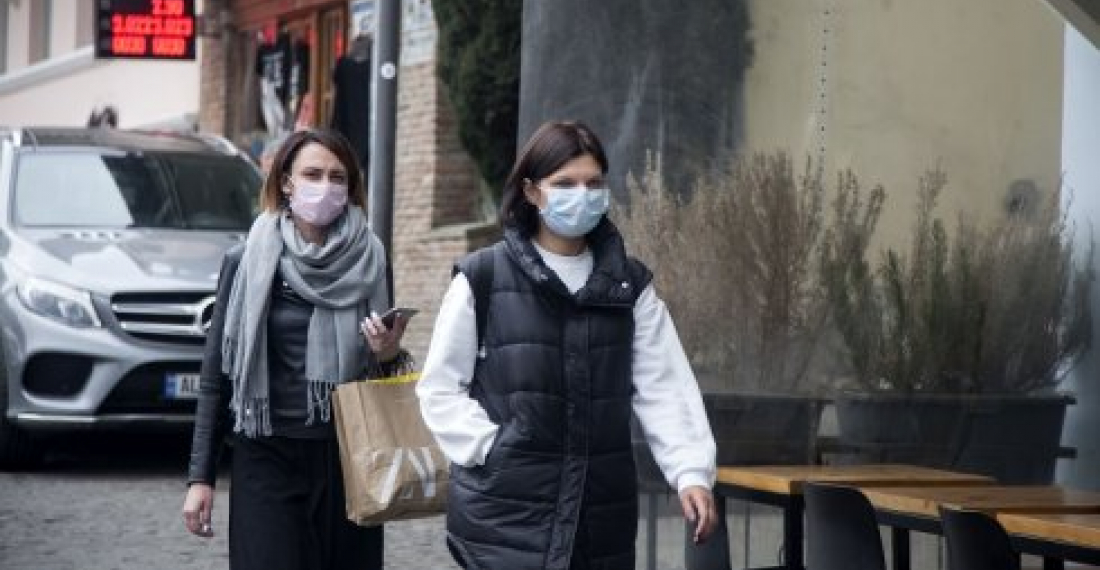In the South Caucasus the efforts to combat the spread of the coronavirus appear to be well co-ordinated, and adequate resources allocated. There are however some looming dangers, writes Dennis Sammut in this week's Monday Commentary
The Coronavirus pandemic dominates life across the world, and particularly Europe. As of Monday morning (16 March) 157 countries have reported cases and the number of those infected has reached 169 610. 6 518 people died. To date, 77,776 people have been cured of the viral infection. These figures continue to be updated regularly.
By comparison the figures for the South Caucasus countries appear small.
As of Monday morning (16 March) the figures of those infected by the virus were relatively low compared to Europe, and given the proximity of the region to Iran, one of the early epicentres of the virus: Azerbaijan reports 18 cases; Armenia 30 cases and Georgia 33 cases.
But there is no room for complacency or over confidence.
In the three countries the efforts to combat the spread of the virus appear to be well co-ordinated, and adequate resources allocated. Hundreds are in quarantine or in hospital. Borders have been closed - the latest restrictions on the important Russia-Georgia border check point at Lars, except for citizens of either country returning home. The three governments are also issuing regular information. Social distancing, also through the closure of public places appears to be ongoing. In the opinion of observers, overall the Governments in the three countries have performed well given the gravity of the challenges.
There are however several looming dangers:
In the highly individualistic societies, as are the ones in Armenia, Azerbaijan and Georgia, keeping the populations in line for long periods of time will be challenging. There is a very high probability that people will quickly get over confident and start ignoring the basic rules that are necessary if the virus is to be contained. The messaging to the public will therefore need to be kept up, and when necessary even accentuated.
The general opinion both globally and in the region, is that the problem will get worse before it gets better. The prospect of this in the South Caucasus needs to be seen against the current overall state of the health services. Whilst the services have pockets of excellence, overall they are under resourced and fragile. The situation gets worse when one leaves the capital cities to outlaying regions. So far, with only a few dozen cases, the system has coped well and individual attention could be given to those affected. If the virus spreads much more widely - as has happened in other countries - there is a risk that the medical services can be overwhelmed. At a time when resources are stretched in all countries the possibility of external assistance will be limited. Governments need to plan for different scenarios. Most importantly panic needs to be avoided, as should be short term political scoring. This is a time for communities nations and regions to come together.
There is a wider perspective of the coronavirus epidemic, namely the long term impact of the economic and societal disruptions we are witnessing globally. Tackling this wider perspective is not the immediate priority - the focus must remain the medial containment of the virus. But in the medical, and later in the economic and political dimensions the world must not allow coronavirus to become the survival of the fittest. The world must rediscover the meaning of the word "solidarity". Humanity will overcome the dangers of this pandemic, and its after effects, but only if there is solidarity at the international, regional, national and community level. It is only through solidarity that we will get out of this crisis faster and with less damage.
source: Dennis Sammut is a member of the editorial team of commonspace.eu.
photo: Georgians in Tbilisi wearing protective masks in response to the coronavirus (picture courtesy of agenda.ge, Tbilisi
The views expressed in opinion pieces and commentaries do not necessarily reflect the position of commonspace.eu or its partners







